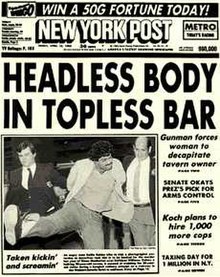This Won’t End Well: Speaking before parliament, UK PM David Cameron said he has ordered an inquiry into the possibility of banning users from social networks such as Twitter and Facebook if it is determined that they are planning to engage in criminal behavior. “Free flow of information can be used for good. But it can also be used for ill,” Cameron said. “And when people are using social media for violence we need to stop them. So we are working with the police, the intelligence services and industry to look at whether it would be right to stop people communicating via these websites and services when we know they are plotting violence, disorder and criminality.” Cameron added that he asked the police “if they need any other new powers.”
Home Secretary Theresa May will hold meetings with representatives from Facebbok, Twitter, and RIM to discuss their role in preventing future riots. “All of them should think about their responsibility and about taking down those images,” Cameron said in reference to Facebook and Twitter posts he believes could incite further unrest.
In related news:

Among the post-riot measures to be enacted in Britain, Reuters reports, will be controls on face coverings and the possible use of the army to suppress future disturbances. Britain will crack down on gangs and may call in army support if this week's riots are repeated, Prime Minister David Cameron said on Thursday, saying he would not allow a "culture of fear" to exist on the streets. The government will also give the police powers to demand people remove face coverings after many looters who ransacked shops during riots in London and other English cities this week wore masks to avoid being identified.
For what criminal activities (such as looting) is the appropriate response to demand someone remove a mask, instead of being arresting for the crime?
The Guardian has full details on Prime Minister David Cameron's report today in Parliament:
Instant messaging services will be reviewed. "We are working with the Police, the intelligence services and industry to look at whether it would be right to stop people communicating via these websites and services when we know they are plotting violence, disorder and criminality," he said.
The police will have new powers to order people to remove facemasks. "On facemasks, currently [the police] can only remove these in a specific geographical location and for a limited time," Cameron said. "So I can announce today that we are going to give the police the discretion to remove face coverings under any circumstances where there is reasonable suspicion that they are related to criminal activity."
Curfew powers will be reviewed. "On dealing with crowds, we are also looking at the use of existing dispersal powers and whether any wider power of curfew is necessary," he said.
Obviously the use of social media can only be used for evil, never for good. One of the most pernicious uses of social media and the internet is this horrific example:

Help Wanted of the Day: 89-year-old Aaron Biber has been cutting hair in Tottenham for decades. Last year, Aaron lost his wife. This year, he lost his business. Rioters ransacked his barbershop, smashed windows, and stole hairdryers. “I will probably have to close because I haven’t got insurance and I can’t afford the repairs,” Aaron says. “Not so fast,” responds the Internet. A website has been launched to help Aaron fix his shop. So far nearly £17,000 have been donated.
Bastards.
So here are some of the measures being proposed in response to the riots:


